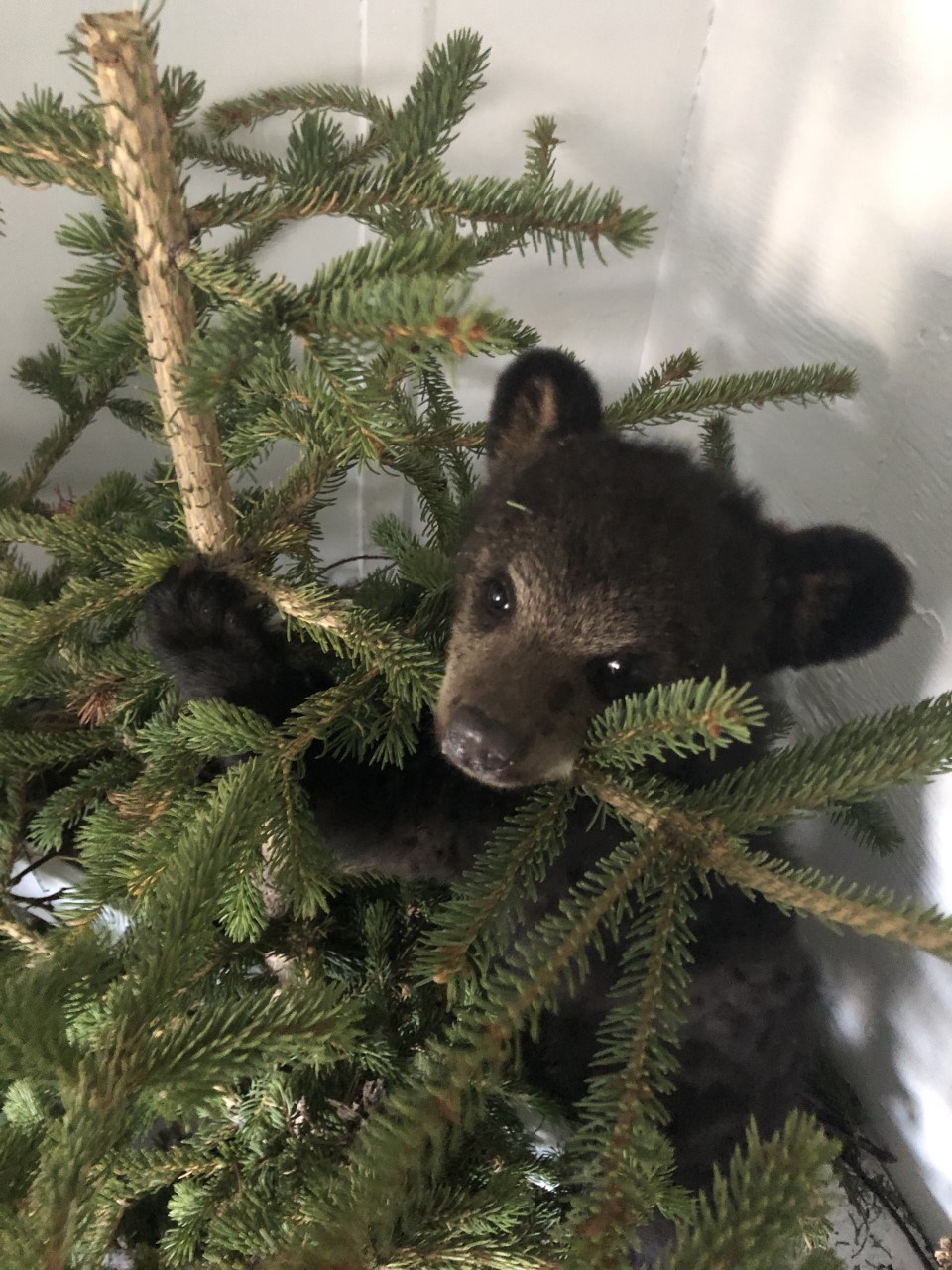Cochrane - A three-month-old orphaned bear cub is getting a second chance at survival after being rescued north of Fort McMurray in mid-May.
The Cochrane Ecological Institute, a charitable organization dedicated to breeding endangered species for reintroduction, rescue, rehabilitation and release, has become Koda’s temporary home as trained staff prepare for her release back into the wild this fall.
“Koda is very cute and one of the most active bear cubs ever, and noisy,” said institute president Clio Smeeton. “We haven’t had such a noisy little cub.”
Smeeton said the young black bear cub had been alone for about four days when she was discovered north of Kearl Lake the morning of May 16. The individual who found her looked for the mother sow for about 12 hours before contacting the Cochrane Ecological Institute, she said.
Koda, who was examined by Dr. Cody Creelman at Fen Vet clinic in Airdrie, was dehydrated and thin, Smeeton said.
Staff at the Cochrane Ecological Institute are working with Koda to ensure her needs are met.
“She doesn’t have that many teeth so she’s not capable of obtaining her own food,” she said. “She can graze on grass and dandelions, but she really needs her mother’s milk.”
Koda will spend the first 30 days in a small nursery before moving into a larger nursery inside a 2.5-acre forested enclosure. The enclosure will become Koda’s home from late June until she is released, said Smeeton.
Besides contact with two staff members who are feeding and caring for Koda, Smeeton said the young cub will have no other human interaction during her stay at the institute. The institute is not open to the public.
“In the first few months of life you have to have interaction with bear cubs because you have to rub their tummies to make sure they do their business,” Smeeton said. “At this age, they’re incredibly touchy-feely with their mom. They need a lot of affection.”
As per provincial regulations for orphaned black bear cubs, Koda will be released back to the region she was discovered in no later than Oct. 15.
To give cubs a better chance, Smeeton said staff at the Cochrane Ecological Institute feed them a lot of food in hopes they will grow large enough to look older than they are, thereby lowering their risk of becoming prey to larger bears.
The institute has been rehabilitating and releasing black bear cubs since 1985, she said.
“If you release an eight or nine-month-old orphaned cub you’re releasing it at a time when it’s at greatest risk of predation and doesn’t have a mom to protect it,” she said. “We hope that they are well over 50 to 60 kilograms.”
Smeeton said black bear cubs hibernate with their mothers in their first year while feeding on milk. In spring, the first bears to emerge are the older males, followed by adolescents and then sows and their cubs, she said.
“If an orphaned cub doesn’t have their mom to suck on all winter when they get up in the spring, they’re really skinny,” she said. “The big old bears have woken up too and they’re really hungry.”
Before Alberta’s most recent policy regarding orphaned black bear cubs, Smeeton said the institute kept cubs in a specially-built den for their first hibernation, and the following winter transported the den and bear to an area deemed suitable by Fish and Wildlife officers, such as on oil lease lands where there are no people.
In 2010, orphaned bear cubs and a list of other indigenous species were prohibited from rescue, but after public outcry and more than 4,000 petitions delivered to the legislature they were permitted to be rescued in 2018, said Smeeten.
Since then, six black bear cubs have been rescued and placed in rehabilitation in Alberta, she said.
Smeeton said the process is done carefully to reduce the risk of cubs becoming habituated to people. Four or five months of hibernation helps, she said.
“After hibernation, they become more aloof. They’re not interested in people, they’re interested in food. If they see a vehicle they run up the tree, if they see a bear trap they run up a tree. They keep away from people.”
The Cochrane Ecological Institute receives no government funding. To continue breeding, rescuing and rehabilitating wildlife it relies on public donations and proceeds from its boarding facility, Happy Tails Pet Resort, said Smeeton.
“If you board your cat or dog with us you are contributing to Koda’s survival and the elk calf we just got and the hummingbird that came yesterday,” she said.
The institute has been an integral part of the Canadian Wildlife Service’s Trumpeter swan and wood bison reintroduction programs, as well as playing a key role in the Canadian swift fox reintroduction program.
Read more from CochraneToday.ca



